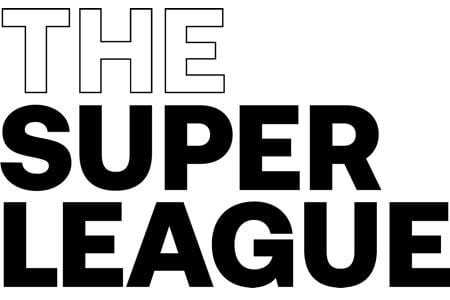 In the world of club football, nothing much changes. Every now and then something might be done to alter the rules to a major competition, such as the Champions League, or a country might decided to fiddle with the rules around what a team needs to do to qualify to play in European competition, but other than that things are pretty much stuck as they have always been and it is extremely rare for something to make headlines.
In the world of club football, nothing much changes. Every now and then something might be done to alter the rules to a major competition, such as the Champions League, or a country might decided to fiddle with the rules around what a team needs to do to qualify to play in European competition, but other than that things are pretty much stuck as they have always been and it is extremely rare for something to make headlines.
That all changed in April of 2021 when twelve teams announced their intention to form a breakaway league that would run in place of UEFA’s Champions League. It caused immediate uproar, with supporters of all British clubs involved, as well as some of the European ones, objecting to it in the strongest possible terms. Within 48 hours the so-called Super League had all but collapsed. Here’s the story of what happened.
Long-Term Rumblings
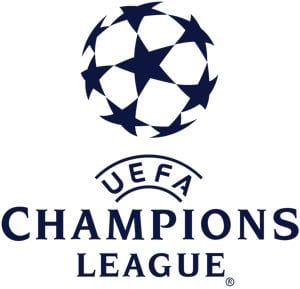 The thing that not everyone realised about the European Super League when it began to make the headlines is that it is actually something that has been around for years. It was first mooted in the late 1990s, with Italian clubs investigating the possibility but finding their plans scuppered when UEFA decided to expand the format of the Champions League. In the decades that followed, more proposals were brought forward from time to time.
The thing that not everyone realised about the European Super League when it began to make the headlines is that it is actually something that has been around for years. It was first mooted in the late 1990s, with Italian clubs investigating the possibility but finding their plans scuppered when UEFA decided to expand the format of the Champions League. In the decades that followed, more proposals were brought forward from time to time.
The discussion almost always centred around the same idea, which was the desire of Europe’s top clubs to increase their financial influence. This included the possibility of playing a ‘39th game’ at the end of the Premier League season somewhere that would allow English clubs to capitalise on the division’s popularity overseas. UEFA’s refusal to realise the commercial potential of European football kept the notion of a Super League bubbling along.
The conversations around a Super League never truly went away, with even the conversation around it in the late 1990s suggesting that it ‘lay dormant’ rather than had completely died a death. UEFA’s insistence on continually altering the format of the Champions League, as well as their desire to keep as much of the commercial revenue from it to themselves as possible meant the Super League was always a possibility.
Rumblings Become Real

Whilst most football fans accepted that the Super League would always be used by clubs as a threat with which to persuade UEFA to take the desires of the biggest clubs in Europe more seriously, few expected it would ever become a reality. So, it was that the publication in The Times of a story by Martyn Ziegler, saying that five English clubs had agreed to sign up to it, was met with a state of shock in the UK.
Manchester United, Liverpool, Arsenal, Chelsea and Tottenham Hotspur had all reportedly agreed to sign up to this new Super League, with Manchester City joining them later in the day. Reports suggested that there would be 15 permanent members, with Barcelona, Real Madrid, Atlético Madrid, Juventus, Internazionale and AC Milan all joining the English clubs and two more expected to be revealed.
Whilst the notion of a Super League had been in the background to European football for years, this was a statement of intent from those clubs involved in its formation. The clubs released a statement about the matter, including the launching of a website for their new endeavour. Suddenly, everyone involved in the sport had to sit up and take notice that this was no longer just a threat and the clubs were serious about breaking away from UEFA.
Details Were Limited
The clubs involved had made their intentions clear, but what was more troubling to most supporters was how little was made public about this new league. In the hours after the announcement, Bayern Munich and Borussia Dortmund both said that they would not be joining the Super League. At the same time, supporters began to question why a club like Tottenham Hotspur, with little European pedigree, were involved.
What people did find out about the new Super League was that the founding members would never have to forfeit their place in it. There would be no relegation for the 15 permanent teams, with five places open to other clubs who could qualify for the league through merit. The founder clubs would also have access to more than £3 billion in funding, leading football pundit Gary Neville to decry that it was ‘pure greed’.
Executives Make Their Moves
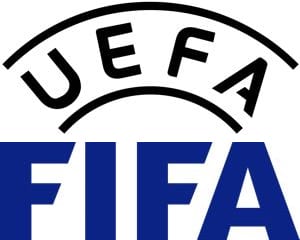 The morning after the announcement of the Super League, UEFA and FIFA were contacted through their respective Presidents, Aleksander Ceferin and Gianni Infantino, and informed that the ESL would make moves in European courts that would stop football’s governing bodies from imposing sanctions on the clubs involved in the enterprise. On top of that, all 12 clubs resigned from the European Club Association.
The morning after the announcement of the Super League, UEFA and FIFA were contacted through their respective Presidents, Aleksander Ceferin and Gianni Infantino, and informed that the ESL would make moves in European courts that would stop football’s governing bodies from imposing sanctions on the clubs involved in the enterprise. On top of that, all 12 clubs resigned from the European Club Association.
In other boardroom-level moves, Ed Woodward, the Executive Vice-Chairman of Manchester United, and his Manchester City counterpart Ferran Soriano both stood down from roles that they held with UEFA. Within hours, Ceferin called the ESL a plan that was ‘disgraceful, self-serving’ and was a ‘spit in the face of football lovers’. He said, “We might be naive in not knowing we have snakes close to us. Now we do. There will be legal action soon.”
Liverpool Become the Focus
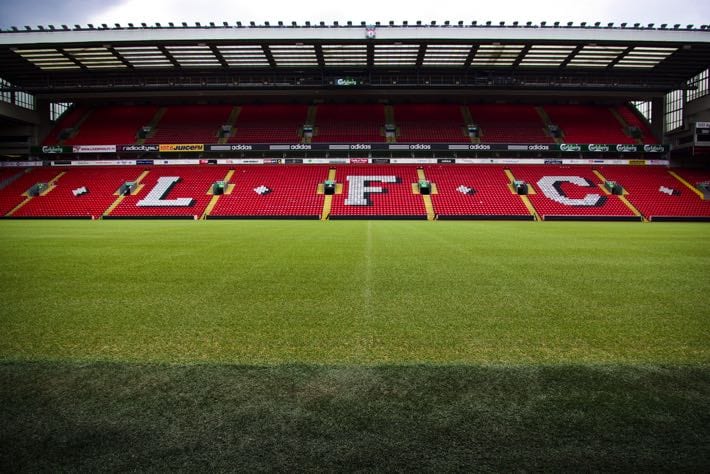
Despite all of the so-called ‘Big Six’ teams in the Premier League being involved in the formation of the Super League, Liverpool became the focus of supporters’ ire. Doubtless, this was partly because the Merseyside club were in action on the Monday evening after the announcement, meaning that Sky Sports’ coverage of the match was instead focussed around the only topic that anyone involved in football was talking about.
Leeds United, who were hosting Liverpool at Elland Road, allowed their players to train in t-shirts that been hastily printed and said, “Football Is For The Fans” on one side and ‘Earn It’ next to the Champions League logo on the other. Manager Jürgen Klopp re-iterated his 2019 opinion that he hoped the Super League would never come to fruition, saying that neither he nor any of his players had any idea it was happening.
Both Liverpool and Leeds United supporters protested outside the ground, holding up banners and chanting their disapproval of the Super League plans. Liverpool’s captain for the match, James Milner, spoke at full-time and gave his personal opinion that he didn’t like the idea of the league and hoped it wouldn’t happen. He stated that the players had no say in the matter and that all they could do was ‘try to win football matches’.
‘Saving Football’
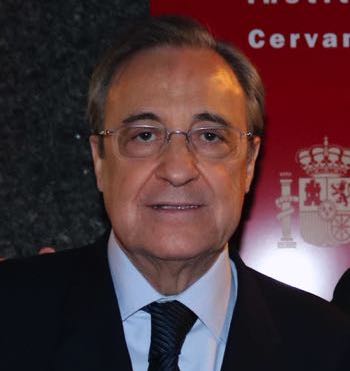
As rumours in the United Kingdom began to emerge that some of the English clubs were getting cold feet about the matter, the country woke up to news reports of Real Madrid President Florentino Pérez speaking to Spanish media the night before. In amongst a wealth of rambling statements, Pérez suggested that the clubs involved were doing it in order to ‘save football’ at what was a ‘critical moment’.
Young people, Pérez claimed, were ‘no longer interested in football’ and didn’t have the patience to watch a match that was 90 minutes long. He suggested that the correct move might be to make football matches shorter, rather than doing things to make the game more accessible to younger people such as lowering ticket prices. He also said that the clubs weren’t worried about legal ramifications, stating, ‘the law protects us’.
Players Have Their Say
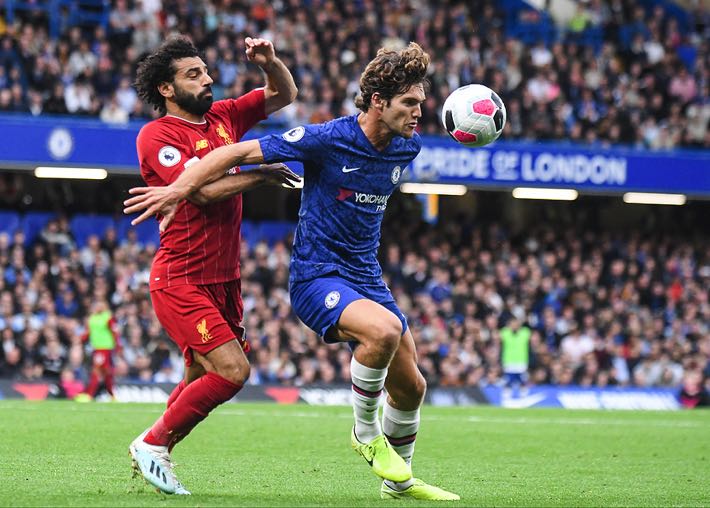
It is unusual for most players to speak out against their employers, irrespective of how they actually feel about a matter. The reality is that footballers aren’t going to speak out against the people that pay their wages unless they truly see no option but to do so, which is why players beginning to release statements around the Super League was so powerful a move for them to make.
— Marcus Rashford MBE (@MarcusRashford) April 20, 2021
Chelsea were playing Brighton & Hove Albion at Stamford Bridge on the evening of Tuesday 20th April, with hundreds of supporters taking to the streets to block the team bus from being able to make it to the stadium. This came after the 14 Premier League clubs had had a meeting in the afternoon without the ‘Big Six’ and stated that ‘all actions available to prevent [the ESL] from progressing’ were being considered.
Soon, news began to emerge that Manchester City were going to pull out of the Super League. Chelsea soon decided to follow suit, with Manchester United’s Executive Vice-Chairman Ed Woodward announcing that he would resign at the end of the year. Liverpool’s players, led by their captain Jordan Henderson, released a statement on Twitter that stated:
— Jordan Henderson (@JHenderson) April 20, 2021
The Super League Crumbles
By 10.45pm on the Tuesday evening, all six of the Premier League teams that were declared to be ‘founder members’ of the European Super League had confirmed that they were going to withdraw from the competition before it had even got off the ground. The following day, Ceferin had confirmed that all of the English sides were ‘back in the fold’ of UEFA, saying that they important thing was for football to ‘move forward together’. In spite of this, the ESL released a statement on the Wednesday morning saying,
Despite the announced departure of the English clubs, forced to take such decisions due to the pressure put on them, we are convinced our proposal is fully aligned with European law and regulations as was demonstrated today by a court decision to protect the Super League from third-party actions.
Though plenty of those involved still felt that the Super League had legs, even one of the founders, the Chairman of Juventus Andrea Agnelli, had to admit that the project was dead in the water. When asked about whether it could still happen he said,
To be frank and honest, no. Evidently that is not the case. I remain convinced of the beauty of that project, of the value that it would have developed to the pyramid, of the creation of the best competition in the world, but evidently no. I don’t think that project is now still up and running.
Why It Was So Hated
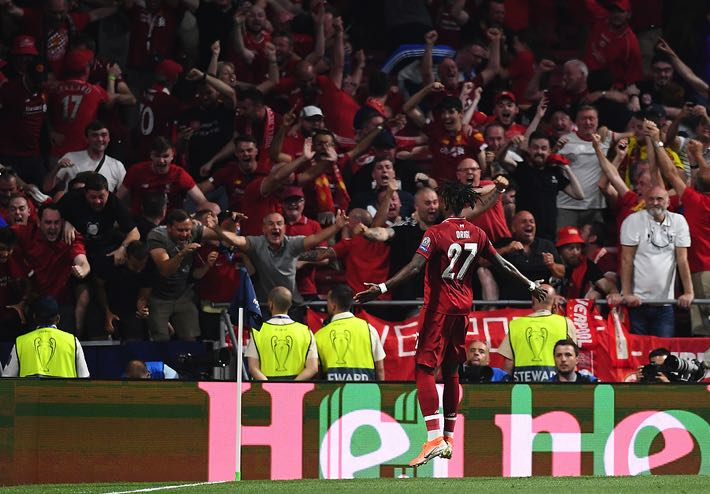
The reality of the Super League was that a competition that challenged UEFA’s dominance of European football wasn’t, in and of itself, a bad idea. The governing body of football in Europe used the furore around the Super League to announce their own plans to change the Champions League and introduce a format that was not a million miles away from what was planned by the Super League.
Yet the manner in which the clubs went about introducing the Super League was flawed from the start. When Liverpool’s principle owner, John W. Henry, released a video statement on the matter, he said that they project would ‘never succeed’ without the fans, but at no point were Liverpool’s supporters consulted on the matter. The same was true of all of the other clubs involved, who displayed disdain for fans in how the competition was launched.
For many in football, the idea of a league in which you faced no consequences for performances went against the sport’s very ideals. Such a closed-shop might work in American sports in the way that the National Football League and Major League Baseball are operated, but in football, you have to earn the right to play in the big competitions and end up out of them if you don’t perform well enough once there.
An open letter to the viewers and subscribers of Redmen TV regarding the break up of the Super League, ownership of Liverpool Football Club and the future of football….#ReclaimOurGame @MetroMayorSteve pic.twitter.com/xFk0IyblG7
— The Redmen TV (@TheRedmenTV) April 22, 2021
When Liverpool played Leeds on the Monday night, nobody had any idea whether the match actually mattered. Prior to the Super League announcement, the Merseyside club were fighting to finish in the top four of the Premier League in order to qualify for the Champions League. Once the Super League had been announced, however, it seemingly didn’t matter how the match ended as they were guaranteed a space in the competition regardless of their league form.
Highlighting Hypocrisy
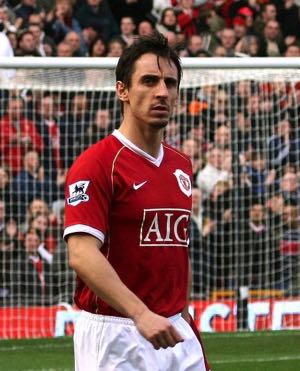
For many, the launch of the Super League and the arguments that were launched against it merely served as a reminder of the hypocrisy that is present across football. Gary Neville had spent the previous season saying that the Premier League should be declared null and void owing to the coronavirus crisis simply because he didn’t want Liverpool to win it. The following season, he said nothing because Liverpool weren’t doing well, even as more people died.
Neville and his former Manchester United teammates had spent the previous couple of years financially doping a lower league club in order to ensure its success, but suddenly he was on Sky Sports proclaiming that the Super League was the death of football. Sky Sports, of course, was launched in 1992 and largely responsible for the launch of the Premier League, which was itself a breakaway league from the Football League.
Sky Sports chose to remove any geo-blocking on videos that they released on social media decrying the Super League, yet put such blocks back in place as soon as it was clear that the project was falling apart. On top of that, the broadcaster refused to admit whether or not it would be involved in the broadcasting of Super League matches, should the proposal have actually made it through to completion.
Given Real Madrid and Barcelona have still not left the Super League are UEFA going to still Chuck Madrid out the CL on Friday like they were reportedly doing if Chelsea, City, Arsenal & United didn’t leave?
— CFCDaily (@CFCDaily) April 22, 2021
Then there’s UEFA, who forced through changes to the Champions League that are widely despised. The organisation also ensures that its ‘partners’ get tickets for Champions League finals, meaning that supporters miss out. When Liverpool played Tottenham Hotspur in the final of the tournament in 2019, they did so in the 68,000-seater Wanda Metropolitana and yet were only assigned around 26,000 seats between them, with the rest going to UEFA’s ‘football family’.
In short, few came out of the Super League fiasco well, with fan groups generally united around the idea of looking to make changes to how football is run across the board. The hypocrisy that is endemic in the sport was shown up for all to see, with many feeling repulsed by what they saw. Whether it will lead to lasting change for football remains to be seen, but many are not holding out much hope.